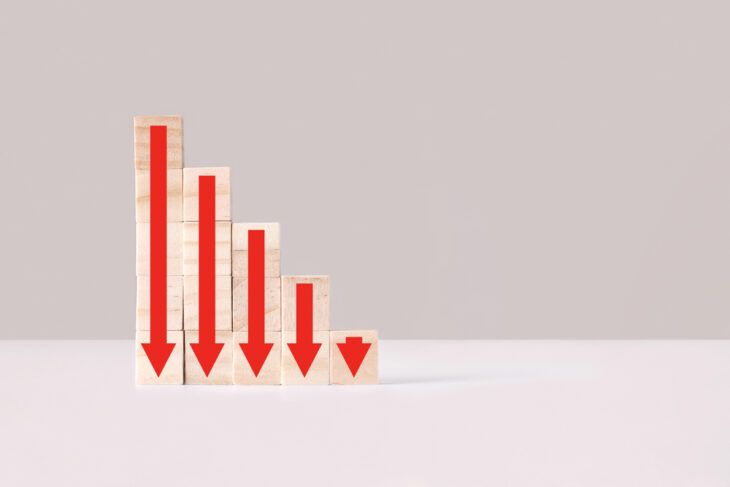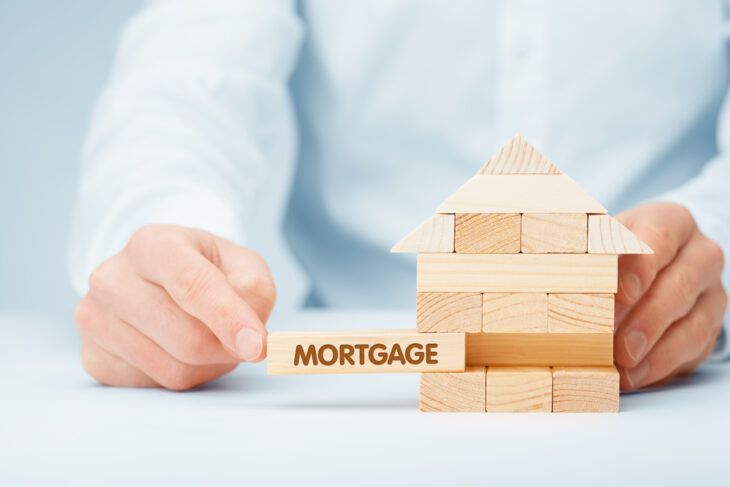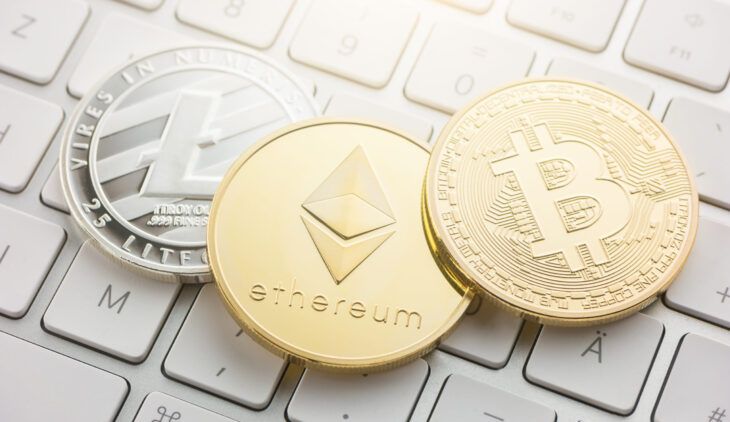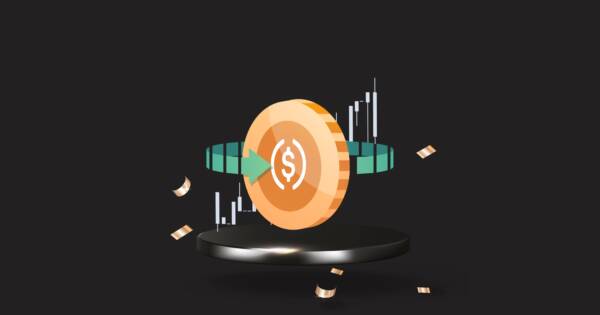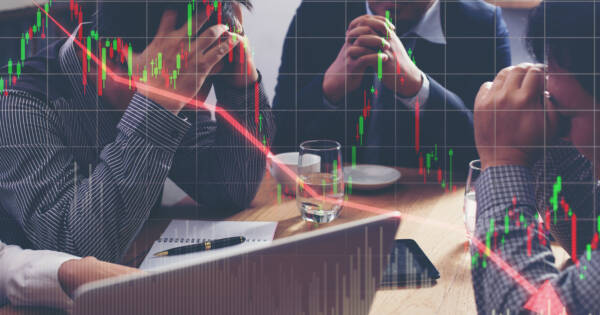I heard a really interesting investing story recently. You see, a really close friend of mine invested in a cryptocurrency and was yield farming on what he thought was a relatively safe investment. He was doing really well for a few weeks in a row. However, someone found a way to abuse the ecosystem he was invested in. They basically drained the collateral tied to his investment and he quickly lost all his profits – then some.
He managed to get out with only a 20% loss, when it was all said and done. I was watching the token price that was causing all the drama and boy, was it a wild ride! The value basically shot up in two weeks from less than $1 to $60. Then yesterday it went from $60 to $28 practically instantly, shot back up to $50, and then fell all the way to $0. The whole episode happened in a matter of hours. There were billions of dollars in value created and then evaporated. Tens of thousands of people’s fortunes were made and then reversed. As you can tell, this was hardly a safe investment for my friend.
My Friend Was Actually Lucky
How do you consider losing 20% of your investment to be lucky? Well, he was lucky in the sense that it could have turned out much worse for him. I belong to some group chats and other online communities where some people essentially lose their live savings on this risky venture. My friend was lucky to not be completely wiped out.
Still, the 20% loss hit his psyche pretty hard. Those kinds of losses are tough to stomach, especially when they happen so quickly. Luckily, my friend is still young, earning a good income, and has plenty of years to bounce back. It was a risky play, but he knew that from the start. If he was older and closer to retirement, he likely wouldn’t have gambled on such a volatile investment.
11. Lower Your Risk When You Approach Retirement
I say this to seniors all the time; they need lower their investment risk as they get closer to (or officially enter) retirement. Once they no longer have a steady income and start needing to withdraw from their nest egg, they need to be a bit more careful. Unfortunately, this advice can often fall on deaf ears — especially when the stock market is booming like it has been in recent years. In fact, many seniors have been doing the opposite lately, by increasing their equity exposure and decreasing the bonds they have in their portfolio. The potential gains are just too tempting, I guess.
Sure, interest rates are really low and bonds can take a hit when rates rise. Still, you need the lower volatility of bonds to dampen the high volatility of stocks. When you are pushing into the senior years, managing risk becomes much more important than maximizing gains. With that in mind, here are some of the investment options you might be considering as a senior, and how safe they are.
10. Money Market, Savings Accounts
Let’s get the safest option out of the way. While these savings vehicles were used by the masses in decades past to grow their pot, central banks (and their relentless push to lower rates since the 1990s) have pushed yields to incredible lows. Nowadays, you’d be lucky to get 0.5% or 0.6% APY on your money. And that’s if you put your cash into an online version of money market or savings accounts. If you go to a traditional brick and mortar bank, you are looking at something ridiculously low like a 0.02% interest rate.
On the other hand, that small growth is basically a guarantee. Your money is FDIC insured up to $250,000. So it’s completely safe, even if the company holding it suddenly goes under. Many seniors put some funds into a money market or regular ol’ savings account, just so it’s handy and not subject to high volatility.
Risk Level: Very Safe
9. Government Bonds
Essentially, bonds are debt that you buy. It could be debt from a company, but its usually a debt from the government. Some bonds are specifically tied to a certain project. For example, the local government may issue what’s known as a municipal bond to build out services for the local community, like a fire or police station.
Even the U.S. federal government issue bonds to pay its bills, in the form of treasury bonds. These are generally considered to be the safest of all bonds. After all, we all have much bigger problems to worry about if the U.S. Treasury decides to default on their debt. Bonds are high up on the capital stack, which makes then useful in the event of a default. As a bond holder, you’ll get first dip at recovering your capital through asset sales of whatever is left, as determined by the bankruptcy court.
Risk Level: Very Safe to Safe
8. Investment Grade and Junk Corporate Bonds
Private companies also routinely issue bonds to pay for expenses as well. Some companies, like Apple, issue debt at incredibly low rates, since they are widely viewed as having strong finances to pay off their obligations. Other companies, like AMC, have issued bonds recently at much higher interest rates, since fewer people have the confidence that the battered theater chain will be able to back all the debt they owe.
Companies are rated by rating agencies, based on how likely they are able to service its debt. Investment grade companies have a high chance of honoring their obligations. Meanwhile debt that is “junk” is issued by companies with a sizable risk of defaulting on their debt. Many seniors are attracted to the higher yields offered by these junk bonds. However, it’s generally better to just stick with investment grade corporate bonds and government bonds. If you still want a little risk in your portfolio, keep it in stocks.
Risk Level: Safe to Moderate
7. Stocks
Individual stocks have made many people rich. It’s also bankrupted many (MANY) others. When you buy an individual stock, you are betting that the company will continually improve its earnings and reward its shareholder over the long term. It’s great when you’re right, but it’s also hard to be consistently right.
There’s also a great deal of short-term speculation. While the stock market has historically never lost value over a span of decades, there’s plenty of volatility. The markets routinely go through depressions that can last years. If you were counting on that money because you’re no longer pulling a regular paycheck, it can be extremely painful to watch the stock graphs constantly showing red for months on end. That’s why most seniors should stay away from individual stocks, since the volatility and chance of ruin are high. For equity exposure, you should instead focus more on stock funds — more on this is a minute.
Risk Level: Risky to Very Risky
6. Preferred Stocks
Attracted by the generous yields, seniors have flocked to “preferred stocks” over the past few years. In general, preferred stocks are required to pay its distributions before any dividends to paid to stock holders.
The value of these preferred stocks also tends to follow interest rates. When interest rate rise, the value of preferred stocks goes down. That’s why they are so high right now, since interest rates have gone down so much in the past decade. Be careful though, as most preferred stocks are trading at values much higher than par. This means that if the company decides to redeem these shares, you’ll instantly lose money. Interest rates going up will also lower the value of your holdings.
Finally, preferred stock holders will only get to recover their capital after the bond holders in the event of bankruptcy. So you may get some of your money back if the company folds, but don’t expect too much. It’s still loads better than common shareholders, though. That group normally doesn’t get anything back when the company goes under. Still, there are plenty of preferred stocks issued by solid companies. Stay away from iffy ones now that you are no longer able to recover with income from work. All in all, you can get good payments from preferred stocks. You really need to do your research though.
Risk Level: Moderate. Risk of ruin sits roughly between that of bonds and stocks.
5. Real Estate
Many people around the world built their wealth with real estate. When you buy a good property, you get to borrow money to leverage your capital, participate in the appreciation of the value, and also collect rent along the way. What’s not to like?
Then again, managing a property is more like running a business than investing passively. Those 3:00 am maintenance calls aren’t really that common. However, you still have to deal with pricing properties, vetting tenants, and dealing with repair/upkeep. You can make good money being a landlord, but do you really want to deal with that hassle in your golden years? I know lots of people who do, but many others look to exit their property portfolio when they retire. The choice is really up to you.
Risk Level: Moderate (But More Like Running a Business Than Investing)
4. Real Estate Investment Trusts (REITs)
Real Estate Investment Trusts (REITs) are an interesting thing. Equity REITs are basically companies that have a portfolio of properties (and a team of people to manage them). You buy into them through stock exchanges and they can be traded during market hours, just like regular stocks.
Some people like their higher dividends. However, you are introducing volatility and market risk into the mix. Seniors should also note that investing in a REIT is not the same as investing in a property. When you invest in an individual REIT, you are invested in the success of that single company. It just so happens that the company manages properties and they use high leverage to generate returns.
The advantage here is higher yield. The disadvantage is high volatility like stocks. REITs routinely use high leverage and they can go bankrupt, even if their property portfolio is really solid. Be careful here.
Risk Level: Risky to Very Risky
3. Mortgage REITs (mREITs)
There are actually two types of REITs. One is known as equity REITs and those are the companies that buy, manage, and sell real estate properties. Another type of REIT is called Mortgage REITs. These companies basically provide financing to investors to buy real estate.
They are much harder to understand and I strongly advise seniors to stay away from mortgage REITs. This is because even the solid businesses’ stock prices are extremely volatile. Retirees just don’t need the extra stress of watching their investments swing up and down so wildly. Some of these companies do seem to print money though, so there’s a large upside (if you can stomach the risk).
Risk Level: Risky to Very Risky (Higher than Equity REITs)
2. Funds
There’s a way to lower the risk of any of the above investments. All you have to do is invest in a fund. There are stock funds, bond funds, and even REIT funds. They all trade on the major exchanges. Funds are basically an investment vehicle that invest in a basket of the underlying assets. By investing in a fund (instead of an individual security), you get some diversification. That spreads the risk among all the investments of the fund. The downside is that the fund companies also want to make money, so they charge you a fee with what’s known as the expense ratio. Your investment performance is also tied to which security the manager invests in.
Index funds try to address several of these short comings. For one, these funds simply try to mimic the stock market as a whole. Therefore, you don’t try to pick winners. Secondly, they don’t charge a high fee at all. The Vanguard Total Market Index Fund (VTI) charges only 0.03% of assets per year. In fact, Vanguard lends the shares it owns out for income, so the fee is even less than the advertised expense ratio. There’s talk that the income from securities lending can be so high that investors will be paid one day to invest with Vanguard’s index fund.
We highly recommend funds for seniors, especially the index funds that don’t try to pick winners. It’s simply a much safer option.
Risk Level: Lowers the risk of trying to pick individual stocks, bonds, or REITs.
1. Crypto Currencies / Crypto Assets
Investing in Bitcoin, Ethereum, and other cryptocurrencies is extremely risky. The meteoric rise in value certainly captured the imagination of the masses (TO THE MOON!) However, you better know what you are doing if you want to dabble into these investments.
It’s a relatively easier to buy these coins at the exchanges like Coinbase. However, having a cryptocurrency wallet of your own and using the decentralize finance vehicles to own and trade these assets require significant technical know-how.
The values of these assets are also extremely volatile. They are also full of scams and black swan events. I already mentioned how my friend lost 20% in a matter of moments. Mark Cuban is a well-known billionaire and owner of the Dallas Mavericks. He’s pretty technical and savvy. However, he lost 100% of his investment in a related investment during the same market event. It’s estimated that the lost was roughly $2.5 million.
Ouch. But he’s a billionaire, so don’t feel too sorry for him. He’s still making plenty of money. The only thing he really lost was probably some temporary confidence. But do you have the income to back up any unsuspecting losses after buying into Dogecoin? You better be careful here. Crypto is a roller coaster ride.
Risk Level: Extremely Risky
The Bottom Line
Investment risks are the same no matter how old you are. Still, seniors don’t have the luxury of waiting for the investment values to come back around. Nor do they have as much income potential to recover from a complete wipe out. For these reasons, you need to move away from risky investments as you get older.
My friend learned his lesson. Luckily, he has plenty of time to make the money back though working and smart investing. Can you afford the same luxury if you lose big, though? In most cases, seniors should favor comfortable and stability over trying to hit it big. I mean, what’s the point of risking your current lifestyle in an unlikely attempt to make millions? You probably won’t live long enough to spend it all anyway, even if you do hit the stock market or crypto jackpot. It’s much more likely to turn into a catastrophe.

